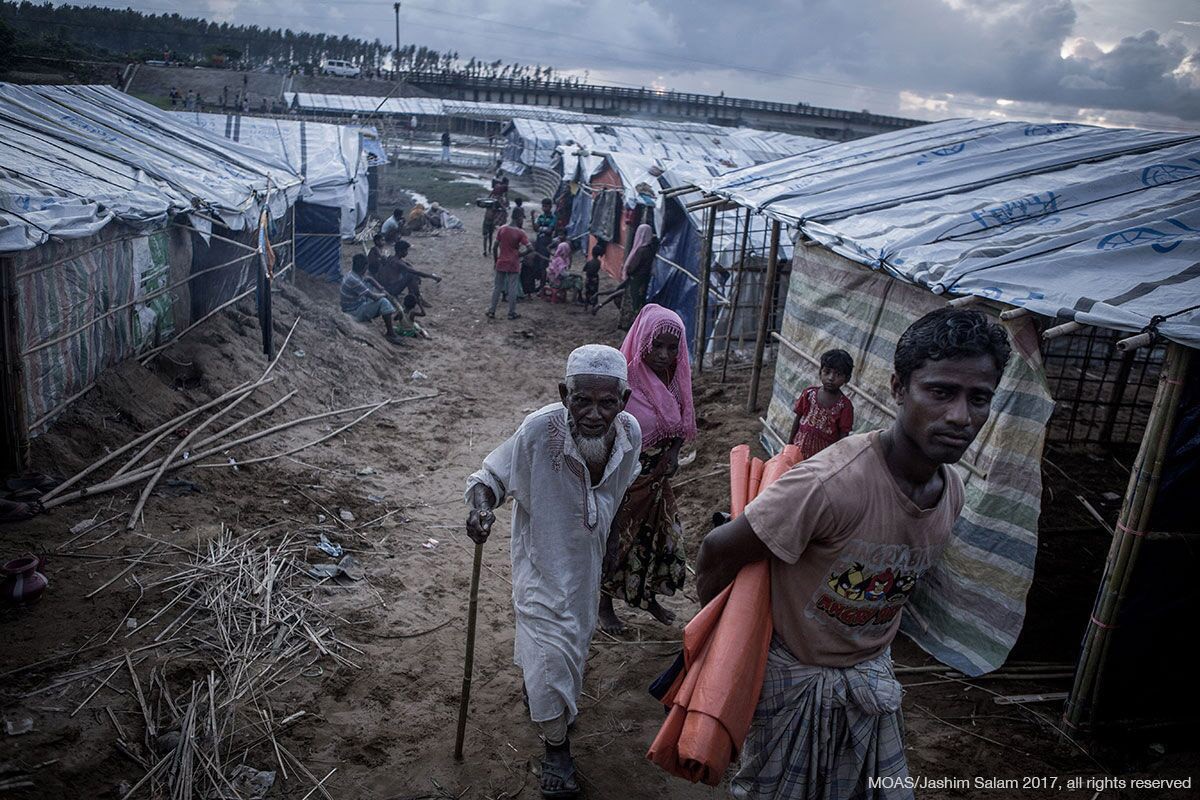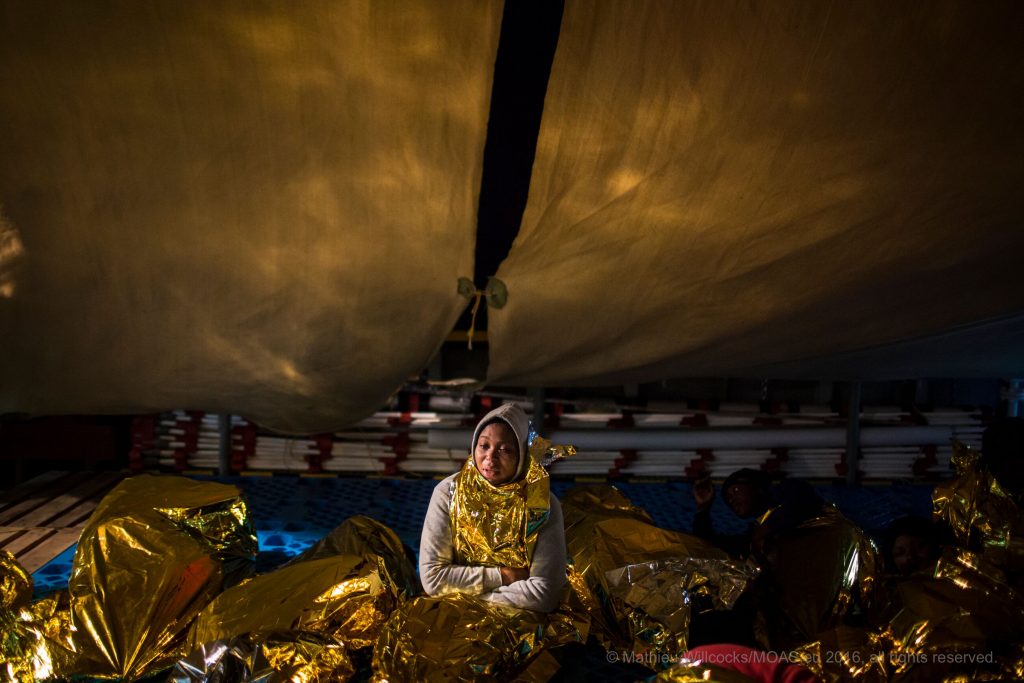
(Credit: MOAS/Jashim Salam)
As October 10th marked World Mental Health Day, this week we want to explore the mental health issues faced by refugees and the challenges related to dealing with them, as this represents a problem which affects a significant part of this community.
World Mental Health Day
The Day was established by the World Health Organisation with the intent of raising awareness of mental health issues around the world and mobilizing efforts in support of mental health.
Celebrating Mental Health Day this year is significant as the COVID-19 pandemic considerably disrupted everyone’s life. Each and every one of us had to deal with new lifestyles and challenges, which have been hard to adapt to and which put quite a lot of pressure on all of us.
Because of this difficult situation, the theme that was chosen for the 2020 edition of this Day is on the increased investment in mental health, as the requirement for mental health and psychosocial support is expected to be more needed within the next months and years, as we adapt and recover from this drastic shift in socio-cultural norms.
The situation for migrants and refugees has of course been particularly difficult, and the consequences of Coronavirus on the mental health of refugees and internally displaced communities have been enormous. UNHCR has reported this as a significant issue for these communities, whose capacities to deal with the situation are now “being stretched to the limit”, according to UN High Commissioner for Refugees, Filippo Grandi. The challenge will be on the management of this problem and on the capacity to properly address an issue that affects a very significant amount of people within refugee communities.

(Credit: MOAS/Mathieu Willcocks)
Mental health of migrants and refugees
Mental health problems for migrants and refugees are not something that first emerged with the outbreak of Coronavirus. The global pandemic has rather exacerbated an already critical situation. The sufferings and hardshipsthat are frequently faced by the migrant community often cause several dramatic effects on their mental health.
Approximately one out of three refugees and migrants suffer from mental disorders. Common mental health diagnoses associated with refugee populations include major depression (ranging from 5% to 44%), generalized anxiety (from 4% to 40%), panic attacks, adjustment disorder, somatization and post-traumatic stress disorder (PTSD, 9–36% in refugees, the majority being children). Contrary to popular belief, PTSD is not the most prevalent disorder in refugees, mood disorders, such as depression, are more frequent than PTSD in refugees and migrants.
Some people cannot recover from the traumas they experience, whether in countries of origin pre-departure, during the journey or once they reach safe countries, and tragically decide to end their lives. The suicide rates among migrants are quite alarming, ranging from 3.4% to 34% and multiple instances are too often reported on the news every week of refugees or migrant people who can no longer stand their conditions or cannot bear the consequences of what they had to go through.
Mental health disorders of refugees can derive from different reasons or experiences they faced during any stage of their migration process. Many are often trying to escape persecution, disruptions and wars in their countries, where they faced conflicts that forced them to abandon everything or resulted in them losing family and friends. The journey to safety is also very tough to face, as many people often fall victims to torture, rape, trauma, and loss. The journeys themselves are often perilous and unsafe, in extreme conditions which can put their lives on the line. Once finally in a safe country, the existent barriers for their integration or legal recognition can be hard to deal with, causing them to become marginalized further. They sometimes find themselves in hostile places to live, with language and cultural difficulties, facing financial insecurity and poverty, homelessness or poor accommodation, and with few employment opportunities. All these factors can really put migrants in difficult situations and may be the causes for consequent mental health issues. Refugees suffering from mental health disorders, seen negatively by host communities, often become victims of further discrimination and marginalization.
Challenges in addressing refugees’ mental health
It is important then for institutions and entities dealing with refugees to find efficient ways to address this considerable issue. However, there are many challenges in the treatment of mental health problems in refugees.
Migrant people and refugees do have the possibility of seeking professional mental health treatment in the country they reside in. However, most of the times they make little use of these possibilities, mainly because of the existent barriers which may prevent them from receiving proper help. Barriers like language difficulties or cultural differences make the access to mental healthcare difficult for refugees, as a lack of therapists who understand the language and culture of refugees’ country can further complicate the situation. The host country may also lack proper information dissemination about the health care system for migrants, there might be limited entitlements to receipt of free care or different explanatory models of mental distress may exist.
The recognition of mental health issues represents indeed something very problematic, as the attitudes to medical and psychological treatments might be different among migrants, who might still feel a social stigma around receiving treatment and medication for these issues. Access to mental health care for migrants can be also difficult if they find themselves in situations of irregularity regarding their visa status, which often prevents them from reaching out for help.
Actions needed
Supporting refugees with their mental wellbeing is a crucial matter for host societies, in order to make sure that people who go through such hardships can return to normal life and affected people can be empowered. As the 2020 edition of World Mental Health Day focuses on increased investment in mental health, some key priority action areas are identified for consideration by policy-makers regarding the mental health of refugees and migrants.
First of all, it is essential to extend and implement the network of mental health services for refugees as in raising more awareness regarding their rights as well as clarifying and sharing information on entitlements to care. This can also be done by mapping outreach services or setting up new services if required.
Services of interpreting and cultural mediation are essential to overcome language barriers. It also important to ensure that the mental health workforce is trained to work with migrants, working also towards the integration of mental, physical and social care.
To better implement mental health services for refugees, the need is to invest in long-term follow-up research and service evaluations for service planning and provision and sharing principles of good practices across countries.
As for most of refugees, the main exacerbators of mental disorders can be traced to issues in the host country, due to the lack of integration and the challenging situations they find themselves facing. The promotion of mental health could be done by implementing means of social integration for refugees in the countries they live, so that they would be able to live their lives with dignity and with no struggle for survival, risking developing mental health issues.
If you’re interested in Xchange’s work, please follow us on social media or sign up to our newsletter for up to date information on our activities and plans. If you would like to support our research, please donate now.



